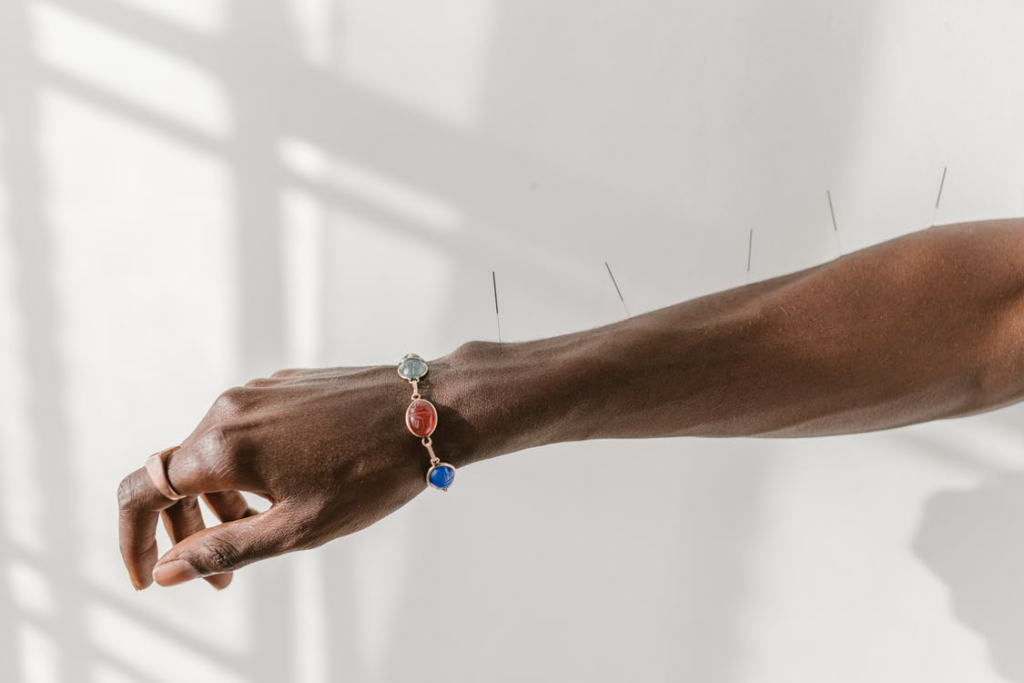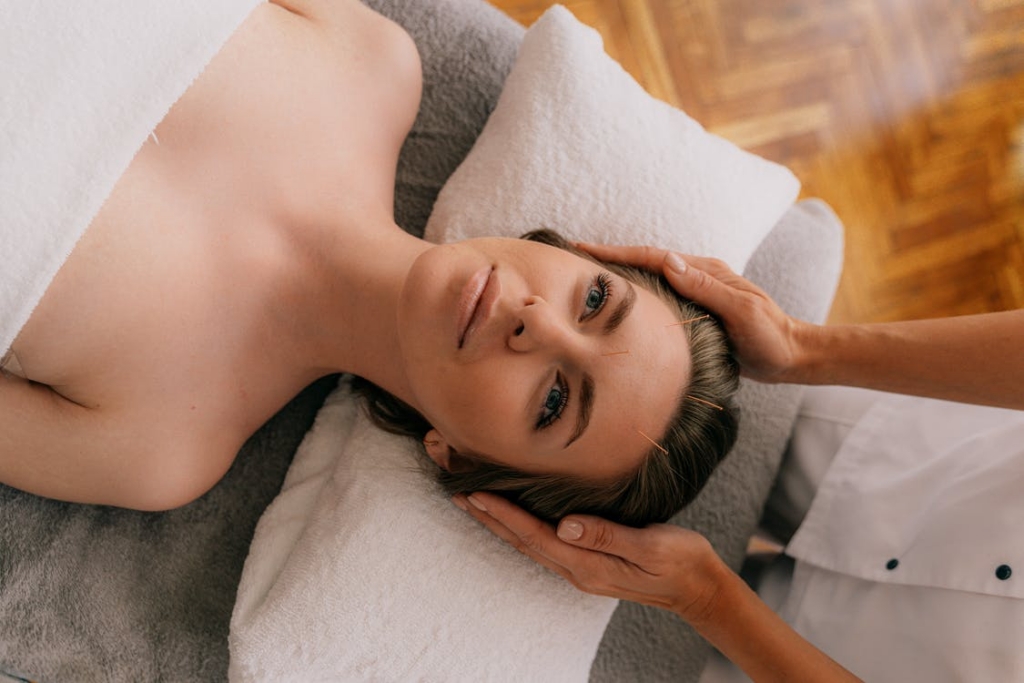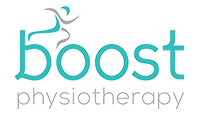
Let’s Talk the Difference: Dry Needling vs. Acupuncture
At first glance, both acupuncture and dry needling appear to be the same thing. However, they are two different practices and are used for specific conditions. Let’s take a closer look at the two procedures in this blog.What Is Acupuncture?
Acupuncture is a holistic healing practice used in Traditional Chinese Medicine. It has been around for thousands of years and is often classified under “Oriental Medicine” because of its origins. The practice involves inserting fine needles into the skin at targeted pressure points to stimulate a natural healing response within the body. Acupuncture focuses on manipulating energy (aka “chi”) to resolve pain, discomfort, and illnesses. The core principle behind the ancient practice is that blocked energy can result in painful and uncomfortable medical conditions. By targeting pressure points in the body, negative energy is released, resolving said conditions and relaxing the body and mind. Today, acupuncture is practiced by hundreds of healthcare practitioners around the world. It’s frequently integrated with modern healing techniques and treatments for optimal results. The procedure is performed by licensed acupuncturists who train in needle usage. They also undergo rigorous testing and supervision before receiving their licenses and adhere to specific instructions when practicing acupuncture.What Is Dry Needling?
Dry needling doesn’t have roots in ancient Chinese medicine, unlike acupuncture. It’s a modern treatment strategy that’s typically used to ease muscular pain. The procedure involves inserting thin needles in the body similar to the ones used in acupuncture. Since the needles don’t inject any fluid into the body, the term “dry needling” is used. While the procedure may sound similar to acupuncture, there are a few key differences between the two. Firstly, dry needling isn’t based on the concept of Chi. The idea here isn’t to release trapped energy, unlike acupuncture. Secondly, the trigger points in dry needling are usually areas that directly impact the muscle or tissue being treated. The process is also referred to as intramuscular stimulation since the targeted pressure points are usually knotted tissues or muscles. Moreover, dry needling doesn’t typically require years of training and testing. While professional dry needling practitioners receive some training, the process is easier and less rigorous than acupuncture licensing.What Can Acupuncture & Dry Needling Treat?
Several studies have highlighted the efficacy of using acupuncture to treat various ailments and health conditions. According to one study, individuals with lower back pain benefit tremendously from acupuncture. The procedure provides them with short-term pain relief and is especially effective when used with other treatments such as physiotherapy and medication. Similarly, acupuncture can help reduce neck stiffness and pain. It eases the muscle tension, helping the neck muscles loosen up and relax. Studies have also shown that acupuncture can significantly reduce musculoskeletal pain such as knee pain, shoulder pain, arm pain, and pain caused by chronic conditions such as osteoarthritis. Additionally, acupuncture has also been found to be an effective migraine treatment strategy. In fact, the practice has an edge over traditional migraine treatments, as it lowers the use of medication, has longer-lasting effects, and barely has any side effects.
Besides physical pain, acupuncture is also used to alleviate the symptoms of depression and anxiety. It helps individuals de-stress and stimulates the body to release endorphins. Research has also discussed the possibility of acupuncture being used in smoking cessation therapy.
In contrast, there’s limited research on the effectiveness of dry needling. Most studies have supported the claim that dry needling can help relieve mild to moderate muscular pain. Some placebo studies have also concluded that dry needling is effective in relieving muscle pain. Because the research in limited to muscular tension and pain, dry needling is only used for specific ailments.
Additionally, acupuncture has also been found to be an effective migraine treatment strategy. In fact, the practice has an edge over traditional migraine treatments, as it lowers the use of medication, has longer-lasting effects, and barely has any side effects.
Besides physical pain, acupuncture is also used to alleviate the symptoms of depression and anxiety. It helps individuals de-stress and stimulates the body to release endorphins. Research has also discussed the possibility of acupuncture being used in smoking cessation therapy.
In contrast, there’s limited research on the effectiveness of dry needling. Most studies have supported the claim that dry needling can help relieve mild to moderate muscular pain. Some placebo studies have also concluded that dry needling is effective in relieving muscle pain. Because the research in limited to muscular tension and pain, dry needling is only used for specific ailments.
What Are the Benefits of Acupuncture & Dry Needling?
As discussed above, both acupuncture and dry needling can be used to treat certain medical conditions and relieve pain and discomfort. They’re especially effective against musculoskeletal injuries and pain, and can help improve your range of motion, flexibility, and mobility. Additionally, acupuncture also seeks to provide the body with healing energy and removes blockages to induce a state of balance. Both acupuncture and dry needling are minimally invasive treatments. They can be used alongside other treatment strategies such as physiotherapy to help the body heal quicker and more effectively.Are There Any Side Effects of Acupuncture & Dry Needling?
If the procedures are performed by skilled and trained professionals, there are hardly any side effects. However, you may encounter:- Mild pain at the site of injection
- Temporary soreness
- Mild bruising
- Mild bleeding

Physiotherapy Services in Edmonton
At Boost Physiotherapy, we offer comprehensive physical therapy services for muscle pain and other conditions. Our trained physiotherapists specialise in the pain management modalities needed to alleviate discomfort and use the best physical therapy strategies to treat injuries and other causes of pain. We also incorporate acupuncture and dry needling in our treatment plans as and when needed. Get in touch with our trained physiotherapists in Edmonton for specialised physiotherapy services in the area. Book an appointment now!BY: boostptepadmin
Acupuncture, Ims
COMMENTS: No Comments
